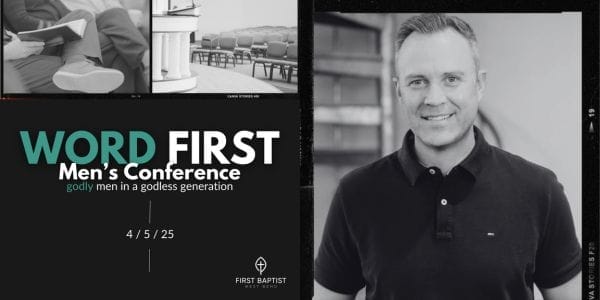EP 169: Thinking the Best of Others: A Biblical Approach to Love and Grace
Inside: Thinking the best of others isn’t always easy, but it’s one of the ways we reflect Christ’s love in our relationships. 1 Corinthians 13:7 reminds us that love ‘believes all things’ and ‘hopes all things’—not because people are always trustworthy, but because God is at work.

Believing the Best: Reflecting Christ’s Love in Our Relationships
As Christian women—whether as wives, mothers, homemakers, friends, or members of our local church body—our relationships are shaped by how we think about and respond to one another. Scripture tells us that love “believes all things” and “hopes all things” (1 Corinthians 13:7). But what does that really mean in our daily lives?
Does it mean we ignore reality? That we never exercise discernment? Or does it point us to a deeper call—to love others as Christ has loved us?
This is an area where I know I need continual growth, and if you’re anything like me, you might too.
Listen to EP 169: Thinking the Best of Others: A Biblical Approach to Love and Grace below (37 minutes) or read the post below (7 minutes):
Resources Mentioned:
Trusting God’s Work in Others: Extending Grace Without Assumptions @ThankfulHomemaker
How Does Love Cover a Multitude of Sins @Desiring God
Word First Men’s Conference – First Baptist West Bend – April 5th, 2025 – Tony Wood Keynote Speaker

G3 National Conference – Faith – September 11-13, 2025 – Atlanta, Georgia
Use Code G3Homemaker for 20% off!

What Does It Mean to Believe and Hope All Things?
The apostle Paul wrote 1 Corinthians 13 to a church struggling with division, pride, and selfishness. He reminded them—and us—that no gift or ability has value apart from love (1 Corinthians 13:1-3).
Verses 4-7 give us a convicting description of biblical love—it is patient, kind, not self-seeking, and, as we see in verse 7, love “bears all things, believes all things, hopes all things, endures all things.”
To believe all things means giving the benefit of the doubt, assuming the best, and resisting the urge to jump to conclusions. Love focuses on strengths instead of dwelling on faults. This doesn’t mean abandoning wisdom or discernment—it means approaching others with a generous spirit.
To hope all things means trusting that God is at work in others. Philippians 1:6 reminds us that God is sanctifying His people. We don’t disregard anyone as hopeless or beyond redemption. Instead, we cling to the hope of what God can do in their lives.
Love isn’t gullible or naive, but it chooses to think the best, extend grace, and trust in God’s work in people’s hearts.
Why Is It So Hard to Believe the Best?
Let’s be honest: thinking the best of others isn’t easy. If someone has hurt us before, it’s easy to be critical or suspicious. Instead of considering their perspective, we might assume their motives.
I’ve done this in friendships and even in marriage—thinking someone didn’t care about my feelings when that likely wasn’t true. It’s so convicting when you realize you’ve jumped to the wrong conclusion instead of offering grace.
And yet, I know how much I appreciate it when others choose to believe the best about me. There have been times when I’ve spoken too quickly or wasn’t as thoughtful as I should have been. In those moments, I hope others extend grace and seek understanding rather than jumping to conclusions. Luke 6:31 reminds us, “And as you wish that others would do to you, do so to them.”
If I long for others to believe the best about me, shouldn’t I be eager to extend that same love to them?
How Does God’s Word Call Us to This?
1. Love Covers a Multitude of Sins
“Above all, keep loving one another earnestly, since love covers a multitude of sins.” (1 Peter 4:8)
This doesn’t mean ignoring sin, but it means choosing grace rather than harboring resentment. Love refuses to magnify every slight or imperfection. Instead of picking apart someone’s faults, love gives the benefit of the doubt, forgives quickly, and entrusts justice to God.
2. Forgiveness and Trust Are Not the Same
“Put on then, as God’s chosen ones, holy and beloved, compassionate hearts, kindness, humility, meekness, and patience, bearing with one another and, if one has a complaint against another, forgiving each other; as the Lord has forgiven you, so you also must forgive.” (Colossians 3:12-13)
Forgiveness is commanded (Ephesians 4:32), but reconciliation and trust require genuine repentance. Trust is built over time and should be based on faithfulness. If someone has repeatedly broken trust, we can still forgive them before the Lord while exercising wisdom in the relationship.
Seeking godly counsel from a pastor or trusted Christian friend can be helpful when navigating repeated hurt. No matter what, God sees, He knows, and He will make all things right in His perfect time (Psalm 37:5-6).
Practical Ways to Believe the Best About Others
1. Pray for Others
When we bring our frustrations and assumptions to the Lord, He softens our hearts and aligns our thoughts with His.
• Pray for their growth in Christ (Philippians 1:6).
• Pray for their needs, struggles, and sanctification (Galatians 5:22-23).
• Pray for your own heart—to be slow to judge, quick to extend grace, and eager to trust God’s work in their lives.
2. Give the Benefit of the Doubt
Instead of jumping to conclusions, ask yourself:
“Could there be another explanation for this?”
• A friend who didn’t text back may just be overwhelmed.
• Your husband’s short response might come from exhaustion, not frustration.
• That distant church friend may be carrying burdens you don’t know about.
Proverbs 19:11 reminds us, “Good sense makes one slow to anger, and it is his glory to overlook an offense.”
3. Focus on Strengths
“Whatever is true, honorable, just, pure, lovely, and commendable—think about these things.” (Philippians 4:8)
Instead of dwelling on someone’s shortcomings, ask God to help you see them through His eyes. A simple way to practice this is by writing down a few things you appreciate about them and, when the opportunity arises, offering encouragement.
4. Speak the Truth in Love
“Speaking the truth in love, we are to grow up in every way into Him who is the head, into Christ.” (Ephesians 4:15)
Believing the best doesn’t mean ignoring sin or pretending everything is fine. When a hard conversation is needed, our goal should be restoration, not accusation. Love corrects with gentleness (Galatians 6:1) and seeks to build up rather than tear down.
5. Handle Repeated Hurt with Wisdom
“If possible, so far as it depends on you, live peaceably with all.” (Romans 12:18)
There are times when peace isn’t possible on our end. While we can’t control another person’s actions, we can choose to forgive, guard our hearts against bitterness, and trust God with justice.
Forgiveness does not mean continuing to endure ongoing harm. If someone is unrepentant or continues in destructive behavior, wisdom may call for boundaries or seeking counsel from a biblical pastor or mentor.
Final Encouragement: Trusting God’s Work in Others
Thinking the best of others isn’t always easy, but it reflects the love of Christ in our daily lives.
Imagine the difference in our marriages, friendships, and church families if we consistently chose to believe the best rather than assume the worst.
Ephesians 4:1-2 urges us:
“Walk in a manner worthy of the calling to which you have been called, with all humility and gentleness, with patience, bearing with one another in love.”
We don’t believe the best because people are always trustworthy—we believe the best because God is.
So today, who in your life can you extend this kind of love to? Trust that God is at work in them and in you. Choose grace, trust, and hope. It’s not always easy, but it is always worth it.

